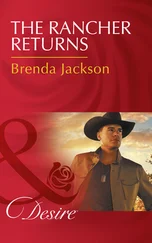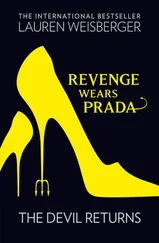The thirteen new men were shown to their places. The others-fifty-two of them were able to make it, some who’d been at the show, some who’d slipped into town and into the Castle in the Sand just for this-sat in the chairs around the circle.
Michael Corleone sat with the rest of his men. He milked the silence. He was not a superstitious man, but he worked with superstitious men and he knew that they were counting and recounting the number of men in the middle and not liking it that the number kept being thirteen. But the risk of letting them dwell on that pointless coincidence seemed worth the reward of letting the men at the tables stew in their barely concealed anxiety. To a person, they were transparently trying, and failing, to look as if this were just another moment in their lives. They knew who he was and that he was in charge of this, and so it was comical to watch them try not to look at him. He could hear the voice of Sergeant Bradshaw, his old DI: Your fool deniiiies fear. A maRINE is unafraid to admit fear. Your fool scoffs at danger. Your fool ignorrrrrres danger. In the face of danger, a… MARINE… IGNORES… NOTHING.
At last Michael stood.
“Let me tell you the story of a boy,” he said, approaching the tables. “He was born one thousand, one hundred and forty years ago in the Sicilian countryside, near the town of Corleone. His childhood was one of wealth and happiness, until, at the age of twelve, the Arab hordes, on their way north through the mountains, slaughtered the boy’s parents. The boy, hiding in a clay pot, peeked out and saw the blade of a scimitar decapitate his mother, and from the dead lips of her severed head she shouted words of love to her only son. These murders were acts of savagery. The Arabs were protecting nothing, avenging nothing. They did not so much as pick a tomato from the vine, a grape from the field, or an olive from the grove. They killed for the sake of killing and proceeded north toward their objective, Palermo.”
Michael took a cigar from the breast pocket of his tuxedo jacket. More than one of the men at the tables rubbed their damp palms against the sides of their thighs.
“The boy’s name,” said Michael, “was Leolucas.” Michael paused to light the cigar and let the importance of the name sink in. “Though only twelve years old, he managed not only to run his family’s estate but also to work the land as long and as hard as someone twice his age. But as the years passed, he heard, in the solitude of the fields, a summons to his one true destiny. He sold his assets, gave his money to the poor, and became a monk. After many years, he returned to the village of his youth, where he performed countless selfless acts and was beloved by all who knew him. He died peacefully in his bed at the age of one hundred.”
“ Cent’anni! ” shouted Clemenza. Every man who had a drink knocked it back.
“Five hundred years later,” Michael said, circling the men at the tables, “the intercession of Leolucas protected the town of Corleone from an outbreak of the Black Plague. And in 1860, more than a thousand years after his death, Leolucas avenged the murders of his parents by appearing as a tower of white flame before the occupying army of the Bourbon French, spooking them from Corleone and into the hands of Garibaldi, who drove them from Sicily altogether. These miracles, and many others at the site of his tomb, were affirmed by the Holy Father in Rome. Leo-lucas is now and forever-” Michael took a regal puff of his cigar, strode to one of the tables, and took the holy card from in front of Tommy Neri, who was one of the thirteen. He kissed the card and set it back down. “-the patron saint of Corleone. Gentlemen?”
He made a sweeping motion with his hand. Each of the thirteen kissed the pasteboard image of St. Leolucas.
“Only a few years after the terrifying appearance of Saint Leolucas in the tower of flame,” Michael said, “in a cottage adjoining the fields once owned and tilled by the sainted Leolucas, another boy was born. His childhood was also happy, until, also at the age of twelve, men came to kill his father. The murder was accomplished with three blasts from a lupara. His mother was stabbed. Gutted, like an animal. Mortally wounded, she, too, managed to shout words of love to her son. The boy escaped. The murderers came after him, knowing that someday he would try to kill them. That man’s name-” Michael took another long draw off the cigar. He felt his own destiny flow through him. “-was Vito Andolini. He immigrated, alone, to the cold shores of America, where, to keep the murderers from finding him, he changed his surname, adopting the name of his hometown. It was one of the few sentimental gestures he ever made, all having to do in some way with la famiglia ”-and here he smacked his chest with his fist-“with his beloved figliolanza ”-and here he touched his chin. “He worked hard, helped his friends, built an empire, and never harbored an immodest thought. One day he did indeed return to Sicily and avenge the death of his parents. Vito Corleone, who earlier this year died peacefully in his beloved garden, was my father. I, Michael Corleone, am his son. But”-and he indicated the men in the outer circle-“these men of honor, too, are la famiglia Corleone. If you wish to be with us, we invite you to be reborn as such.”
Michael took his seat. Fredo had been meant to perform the next part. Despite what people like Nick Geraci thought, Michael’s installation of his older brother as sotto capo had been more a means of encouragement than a job. Fredo had been given a few narrowly defined responsibilities, a small crew of reliable but mediocre men, a whorehouse in the desert, and some symbolic responsibilities, which he was discharging with his usual inconsistency. Michael was resigned to this. No matter how hard you beat a donkey, it will never become a racehorse.
Clemenza planted his cane on the floor, grunted loudly, and stood.
Undoubtedly, each of the thirteen already understood the formalities of this arrangement. But there were conventions to observe. Clemenza began by explaining the structure of the Family. Michael Corleone was the Godfather, whose authority is absolute. Frederico Corleone was the sotto capo. Rocco Lampone and himself, Pete Clemenza, were the caporegime s. Clemenza made no mention of the role of consigliere. This had been the case since the death of Genco Abbandando, first because Hagen, who was not Sicilian, could never participate in, observe, or even be mentioned in these ceremonies, then because during Vito’s brief stint as consigliere, the books had remained closed. Clemenza made no mention of Nick Geraci at all.
“Before you join us,” Clemenza said, “you gotta be clear on some things.” He switched to Sicilian and continued, hobbling around the perimeter of the thirteen. “This thing we have is not a thing of business. It is a thing of honor. If you agree to join, this thing of ours must come before country. It must come before God. It must come before your own wife, your own mother, your own children. If you are summoned and your mother is on her deathbed, you will kiss her fevered brow and leave to do the bidding of your superiors.”
He stopped in front of the chair where he’d started. He leaned forward on his cane, so far it seemed he might topple over. “Do you understand? Do you agree?”
The men unhesitatingly gave their assent.
In return, Clemenza nodded slowly and sat.
Michael again stood and, as if to compensate for Clemenza’s frailty, approached the tables with great, vigorous strides. He’d had too much to eat, too much to drink, too much to do, and too little sleep. Acid rose in his throat.
“There are,” he said, “two laws you must obey without question. You must never betray the secrets of this society, observing the ancient tradition of omertà. The penalty for violating this law is death. You must never violate the wife or children of another member. The penalty for violating this law is death. Do you vow, with your very life, to keep these laws?”
Читать дальше











